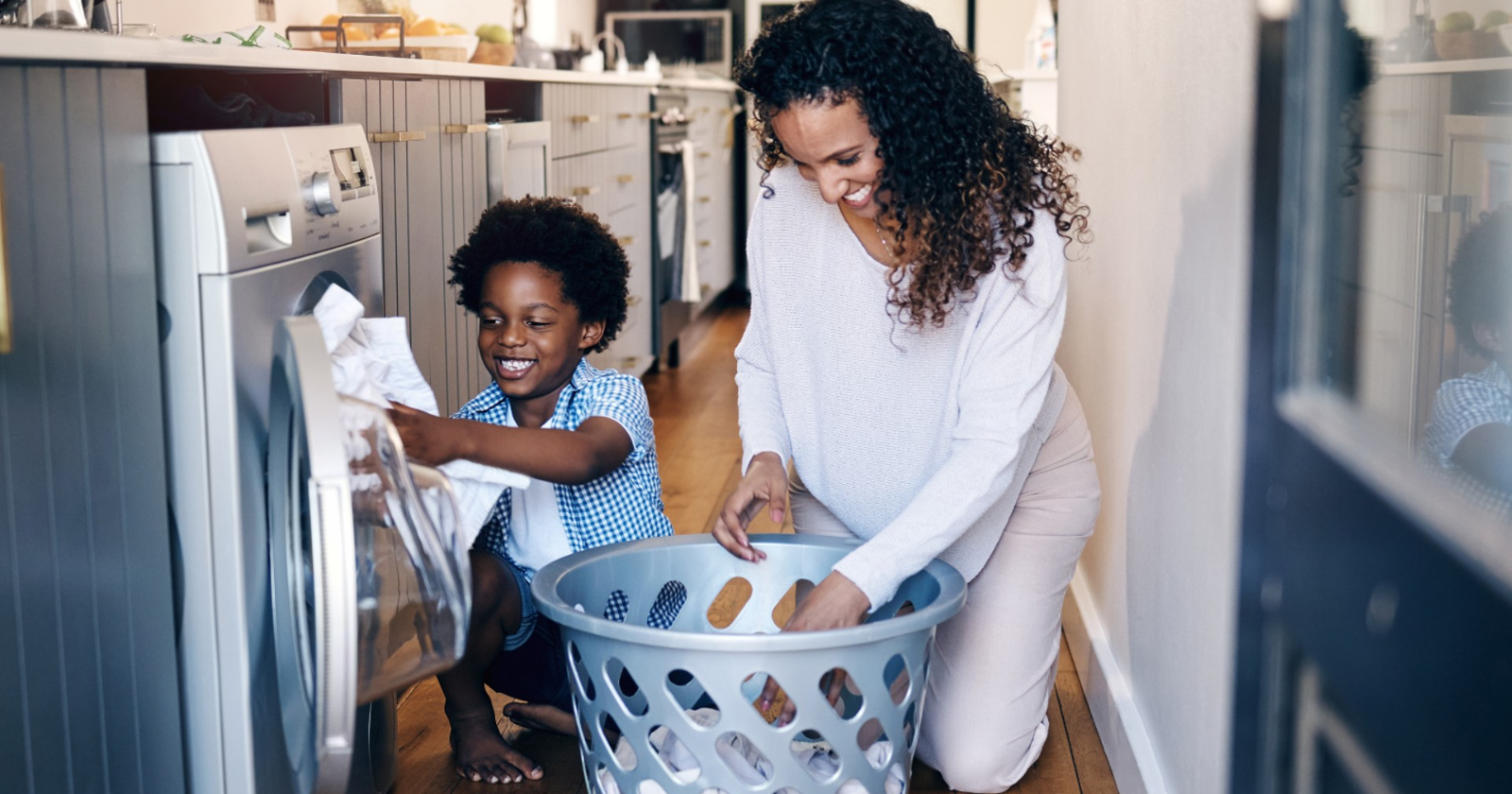Let’s be honest—raising kids while juggling work, chores, and life’s daily curveballs is no small feat.
Between packing lunches, chasing deadlines, and remembering who needs to bring what for show-and-tell, it’s easy for genuine connection to slip into the background.
But here’s the thing: closeness with your kids isn’t built in grand gestures—it’s built in habits.
The small, consistent things we do day after day are what shape a lifelong bond. And the good news? Most of these habits don’t take extra time—they just take a little more intention.
Here are eight that have made all the difference for me.
1) Make small rituals sacred
Every family has its little “things.” The bedtime stories. The Saturday pancakes. The secret handshake before school drop-off. Those seemingly ordinary rituals are emotional glue.
They create safety, predictability, and a sense that this is us.
In our house, bedtime is non-negotiable storytime. My daughter Elise picks the book, and I bring the voices—sometimes she even joins in with her own dramatic narration.
For Julien, it’s the lullaby he hears every single night, even when I’m bone-tired.
These moments don’t need to be elaborate. What matters is consistency.
That’s the foundation for connection—for life.
Related Stories from The Artful Parent
- I’m a boomer and I just realized these 9 things I was so proud of doing as a parent were actually about me, not my kids—and now I understand why they don’t call
- Psychology says kids who were never allowed to fail often carry these 10 limiting beliefs into adulthood
- 9 things great parents do that their kids don’t appreciate—until years later
2) Listen like their stories are the most important thing you’ll hear all day
Ever been halfway listening while scrolling your phone or mentally drafting an email? Yeah, me too.
But kids can feel it when we’re not really there. Listening deeply—without multitasking, without rushing—tells them: you matter.
When Elise starts describing her playground politics (“Daddy, Ava said I can’t be in her club anymore!”), I try to pause and really tune in.
I get down at her level, meet her eyes, and mirror back what she’s saying: “That must’ve hurt.” Sometimes, that’s all she needs—to be heard.
Research backs this up.
According to child psychologist Dr. John Gottman, when parents act as “emotion coaches,” kids grow into more emotionally intelligent adults. Listening builds empathy—and empathy builds trust.
- If you’ve said goodbye to these 7 types of people in your life, you’re smarter than 95% of people, according to psychology - Global English Editing
- 8 responses that instantly shut down passive-aggressive comments without being rude - Global English Editing
- The false story that traveled faster than truth: what one Twitter rumor reveals about digital publishing - The Blog Herald
And trust is what keeps them coming back, even when they’re teenagers and the stories get a little harder to hear.
3) Repair quickly when things go sideways
Here’s a hard truth: even the most intentional parents mess up.
We lose patience. We snap. We say the thing we wish we hadn’t. What matters isn’t perfection—it’s repair.
A few weeks ago, I lost my cool when Julien smeared oatmeal across the floor right after I’d mopped. My tone was sharper than it needed to be.
After I cooled down, I got on his level and said, “Daddy got frustrated. I shouldn’t have yelled. I’m sorry.”
He just looked at me, grinned, and offered me a sticky handful of oatmeal. Kids are forgiving—but they also learn from what we model.
Apologies show them that love is steady, even when we make mistakes. It teaches accountability, empathy, and emotional safety.
If they see us own our missteps, they’ll feel safe coming to us when they’ve made theirs.
4) Share responsibility—not just chores

In my book, closeness grows from teamwork.
Camille and I share the household load shoulder-to-shoulder—not just the dishes and laundry, but the emotional labor of remembering doctor appointments and preschool spirit days.
And our kids see it. They see cooperation, fairness, and partnership modeled every day.
That dynamic extends to the kids too.
When Elise helps set the table or gathers Julien’s favorite toy before bedtime, she’s not just “helping”—she’s participating in our family rhythm. It gives her a sense of ownership and belonging.
As author and parenting coach Janet Lansbury notes, “Children feel most secure when they know they have a role in the family’s functioning.”
It’s not about giving them chores for the sake of chores—it’s about inviting them into the team. Because belonging and responsibility often grow hand in hand.
5) Celebrate the ordinary, not just the exceptional
It’s easy to cheer for the A on a spelling test or the first soccer goal. But what about the effort it took to get there? Or the kindness they showed a sibling that no one else saw?
When we only celebrate achievements, we accidentally teach kids that love is performance-based.
When we celebrate effort, kindness, curiosity, and perseverance, we remind them that they’re valued for who they are.
In our house, we make a big deal of “small wins.” Elise putting on her shoes without a meltdown. Julien trying broccoli (even if he spits it out five seconds later).
We clap, we high-five, we laugh. It’s about reinforcing growth, not perfection.
That kind of encouragement helps them develop internal motivation—and that’s what keeps relationships grounded in respect, not approval-seeking.
6) Stay physically affectionate—at every stage
Affection evolves as kids grow, but it should never disappear.
Those toddler snuggles turn into goofy hugs, shoulder squeezes, and “I’m proud of you” pats as they get older. It’s still the same message: you are loved, safe, and wanted.
When Elise was little, she’d crawl into my lap every morning.
These days, it’s more like a running hug at pickup. But even at four, I see her check for connection through touch. And I plan to keep that door open for as long as she wants it.
Physical affection releases oxytocin—the “bonding hormone”—which literally strengthens emotional closeness.
According to research, simple gestures like hugs and cuddles reduce stress and improve mood in both giver and receiver.
Hug often. Tickle. Hold hands. Sit shoulder-to-shoulder while watching a movie. These small gestures say what words sometimes can’t.
7) Create one-on-one time that actually feels like time together
If you have more than one child, you know how hard this can be. Between work, chores, and playdates, alone time can feel like a luxury. But it’s essential.
Every week, I carve out a “Daddy date” with Elise. Sometimes it’s grabbing muffins after school. Sometimes it’s her helping me wash the car.
The activity doesn’t matter—what matters is that she gets undivided attention.
No phone. No brother. Just us.
With Julien, one-on-one time looks different—it’s the 6 a.m. bottle snuggles before the rest of the house wakes up, or a walk in the carrier after dinner. It’s short, but it’s consistent.
These moments say, “You don’t have to compete for my attention. You already have it.”
And when kids believe that, the bond becomes unshakable.
8) Keep growing alongside them
Here’s the real secret: staying close isn’t about locking your relationship in a specific stage—it’s about evolving with it.
The way I connect with Julien as a baby—through touch, routine, and eye contact—isn’t the same way I’ll connect with him at 8 or 18.
But the intention stays the same: curiosity, respect, and unconditional love.
That means staying teachable as a parent. Reading, listening, reflecting. Letting your kids change you. Because they will.
When they see us stretch, admit mistakes, and keep learning, they understand that growth is lifelong—and so is love.
Final thoughts
Closeness with our kids doesn’t come from perfection. It comes from presence.
It’s built in the five-minute talks at bedtime, the laughter during cleanup, the quiet “I’m sorry” after a rough moment.
It’s the thousand small ways we remind them, again and again, “You can count on me.”
One day, they won’t need us to tie their shoes or pack their lunches. But if we’ve built trust, if we’ve listened, if we’ve repaired and grown alongside them—they’ll still come to us.
For advice. For laughter. For home.
That’s the kind of bond that doesn’t fade. It just changes shape—and keeps on growing.



